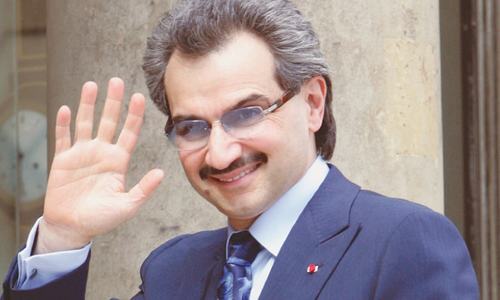For decades, Saudi Arabia was known for its resistance to change. And even when changes were introduced, the pace of their implementation was often glacial.
However, over the past few months, under orders from Mohammed bin Salman, the young crown prince, change in the kingdom, it appears, has been occurring at breakneck speed.
The events of this past weekend have caused seismic shifts within the Saudi establishment. In one fell swoop, the crown prince has rounded up highly influential figures in the kingdom, including princes, ministers and business magnates.
The reason? An ostensible anti-corruption crusade. A new anti-corruption body was hurriedly put together, with the crown prince as its head, and swiftly went to work rounding up some of the most powerful men in the kingdom.
The people rounded up are no two-bit fraudsters: they include Al Waleed bin Talal, the billionaire prince known for his investments spanning the globe, as well as Saleh Kamel, a non-royal who headed one of the kingdom’s top business houses.
Along with the detentions for supposed graft, Mohammed bin Salman had Miteb bin Abdullah, late King Abdullah’s son, removed from his position as head of the powerful National Guard that keeps an eye on internal dissent.
At face value, the anti-graft campaign should be welcomed; after all, princes and other powerful Saudis are known to skim off ‘percentages’ from huge contracts. However, there seems to be more at work here than just a desire to crack down on financial sleaze.
The crown prince appears to be solidifying his grip on power by sidelining potential opponents. Soon after his father Salman became king in 2015, Mohammad bin Salman’s uncle Muqrin was relieved from his duties as crown prince. The position then went to Mohammed bin Nayef, his elder cousin. He too was edged out to make way for the monarch’s son.
While Saudi Arabia has always been an absolute monarchy, some form of participation in government affairs has existed in the shape of power-sharing agreements between leading princes, the clerics and tribal chiefs. However, the Saudi heir seems to be upending these decades-old arrangements in favour of total control.
Indeed, he seems impatient to implement his reform agenda and replace the elder generation with fresh blood. However, alienating other power centres, indeed trying to neutralise them, may actually hamper any attempts at reform as internal divisions are fuelled.
At present Riyadh is at war with Yemen, while its other neighbours — Iraq to the northeast and Syria in the far north — are also unstable. Its rows with Qatar and Iran also show no sign of being resolved soon. In such a precarious regional scenario, the crown prince must handle internal reform carefully.
Those states with strong relations with the Saudis, such as Pakistan, must watch and wait to see how the power games in Riyadh play out.
Published in Dawn, November 7th, 2017















































